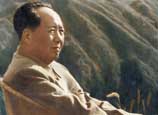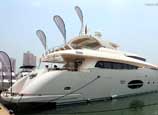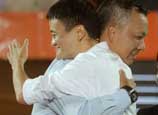
China could adopt a strategy that promotes easier and less risky reforms at first, namely deregulating direct investments in three years, and then move on to higher-stakes items like real estate and bond trading in five to ten years, according to the PBOC study authored by the central bank's financial survey and statistics chief Sheng Songcheng.
Analysts assume the Chinese central bank will expand the yuan's trading band against the dollar to 2 percent by the end of 2013.
"It's not a good time to widen the band. The money inflow is so severe at the moment," said Chang Jian, China economist with Barclays Capital. She suggested the authorities could instead allow individual investors to seek opportunities aboard.
Economists said to facilitate the liberalization of the capital account, China must ratchet up its financial reform, which means higher efficiency, stronger competition, a bigger bond market and lower risks involved with local governments' debt.
"The first step is to liberalize China's interest rates. The sooner the better," Chang said.
The Chinese central bank set benchmark interest rates for the market and only allows them to float within the floor of lending rates and the ceiling of deposit rates. Last year, the central bank expanded the range twice. Further relaxation is expected in the second half of the year.
Chang added cultivating the bond market will improve the country's financial efficiency as well.
As big companies get funding directly from selling bonds, state-owned banks will more likely lend money to medium-sized and small enterprises, which are cash-strapped.
Sheng and his colleagues at the central bank noted in another study published last year that deregulation of interest and currency exchange rates can be coordinated with the yuan's internationalization and the relaxation of capital controls.
"Whenever opportunity for any aspect of reform becomes ripe, we must carry it forward," the paper said.
China has been pushing the yuan out of its borders with equities worth more than 900 billon yuan (146.5 billion U.S. dollars) traded offshore. So far, China has signed currency swap agreements with more than 20 countries, which totaled 1.7 trillion yuan.
It also doubled the yuan's trading band against the U.S. dollar to 1 percent from the middle of 2012. Yuan's unilateral appreciation has also ended, as the currency entered to a state which China's foreign exchange chief Yi Gang called "equilibrium."
Chinese central bank officials, however, repeatedly said the country will not completely give up its capital control.
"China opens its capital account with some reserve," Yao, the Societe Generale economist said.
"China's capital regulation will not be as relaxed as Singapore's or Hong Kong's. In several years, the degree of openness may be close to that of the Republic of Korea," Yao added.

















 New lease on life
New lease on life
Pay tribute to mothers who have been through Wenchuan earthquake


![]()
